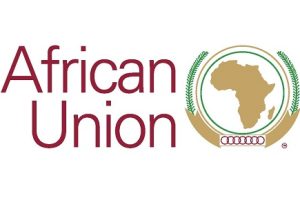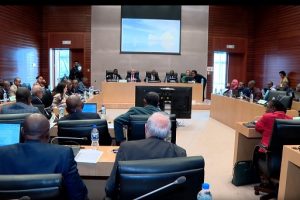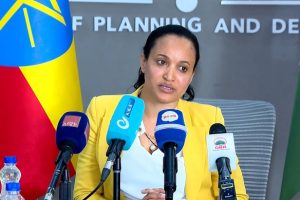
BY SOLOMON DIBABA
The Ethiopian Investment Commission announces that a flagship event of Invest Ethiopia 2023 is to kick off from April 26- 28, 2023 at Skylight Hotel in Addis Ababa in which 600 new and existing investors from overseas and local ones are to converge along with high government officials companies, chambers, policy makers and other stakeholders who are expected to preside over the deliberations.
Growing FDI and local investment initiatives are proving to be the linchpin of Ethiopia’s economic development over the last five years and presumably beyond. The event which was launched in 2022 is expected to be conducted every year with a special focus on the commanding heights of the Ethiopia economy including agriculture, manufacturing industries, mining, ICT and tourism. Other areas of investments in transport and logistics, energy and health will also be highlighted.
The author recalls that the above mentioned areas of FDI are also among the key sectors of focus for the ongoing Digital Ethiopia Strategy and the Ten Years (2020-2030) Perspective Plan of Ethiopia. One can easily see that the event is not a standalone occasion but is part of the Tens Years Plan mentioned earlier. Two years back that is in 2021, EIC reported that Ethiopia has managed to lure FDI worth 4.9 billion USD the biggest FDI in East Africa. It therefore stands to reason that the IMF has predicted a double digit growth of 13% making Ethiopia one of the fastest growing economies in Africa.
Invest Ethiopia targets three billion USD in FDI for 2023 including 500 million USD soft commitment success in the short run. Ethiopia has now become a major investment destination in Africa primarily because of the comparative advantage the country is enjoying. This includes among other things, relatively better political and social stability, growing economy, excellent climate and fertile soil, strong guarantee and protection, young and trainable labor force, access to global markets, improved economic infrastructure, competitive incentive package and government commitment.
Agriculture is one of the main priority areas for FDI in Ethiopia. According to a research conducted by FDI Intelligence (2022), Ethiopia ranked first in FDI’s latest assessment of the world’s 100 most competitive countries to set up a grain processing plant, followed by surprise contender Myanmar; Asian powerhouses China and India; and Ghana in west Africa. The model allocates a 50% weight to both quality and cost factors, but does not account for political risk.
The research indicated that millions of people have been impacted by spiraling food prices after Russia’s invasion of Ukraine blocked grain exports via the Black Sea. Although exports resumed in July 2022 after an agreement signed by Ukraine, Russia, Turkey and the UN, the food insecurity caused by this geopolitical development underlined the importance of domestic crops and processing capacity. In 2023, Ethiopia showed to the world that it has ceased to import wheat and has even started to export grain the same year by introducing cluster farming and lowland irrigation schemes across the country. Ethiopia has the necessary climatic condition and excess farmland to produced and export avocado as new food crop for investment.
The manufacturing sector is another important economic sector that is already a focus area for investments in Ethiopia. Ethiopia’s manufacturing sector is small, even by African standards. For over 20 years, the share of manufacturing value added in total value added in Ethiopia has varied between four and five percent. Compared to other countries in sub-Saharan Africa (SSA), this is a very modest contribution.
Although Ethiopia is striving to increase the share on the manufacturing sector from the current five percent of the GDP to 17% FDI in the sector is still very low but public investment in the industrial parks is showing a promising trend for enhancing investments in apparel, pharmaceuticals, ICT products and footwear and other commodities. Local investors tend to invest more in the service sector and are not ready to fully engage in the sector probably because it requires a huge amount of capital investments. The manufacturing sector is a critical sector for gaining forex that is seriously short in the country. Moreover, the mining sector is another important area of FDI investment in Ethiopia.
A report delivered to the HPR by the Ministry of Mines indicated that Ethiopia has earned 458.07 million U.S. dollars during the first nine months of the Fiscal Year 2021/2022. During the reporting period, Ethiopia was able to produce 6,947 kilograms of gold during the reporting period of the fiscal year, an increase of 12% when compared to the same period last fiscal year,” Ethiopia was able to export 2,317 kilograms of jewelry minerals during the stated period. The Ethiopian Minister of Mines, however, acknowledged insecurity in various parts of Ethiopia is an ongoing hindrance for the growth of the east African country’s mining sector.
In recent years, Ethiopia has undertaken a mass sensitization campaign to combat contraband mining activities that have been partly blamed for the east African country achieving unsatisfactory mining revenues in previous years. The country has also made several key reforms in the mining sector in recent years to boost its revenue from the mining sector. This includes the establishment of several gold trading centers while at the same time reducing contraband mining trade. ICT sector is another fast growing area of public and private investment in Ethiopia.
Guided by the Ten Years Perspective Plan (2021-2030), Ethiopia launched its digital transformation strategy 2025 in 2020. The strategy includes five priorities: implementation of a digital ID, digital payments, e-governance, e-commerce and cybersecurity. It is complemented by more specific strategies, such as the National Financial Inclusion Strategy and the National Bank of Ethiopia’s National Digital Payments Strategy, which aim to transform the payment ecosystem and support the building of a cash-lite and financially inclusive economy.
The government is making more progress in some policy areas than in others. While it has finished a pilot for the digital ID and prioritized the interoperability of digital payment services, it is facing challenges in its efforts to reform startup and investment laws. It still needs to draft standalone strategies for e-governance and cyber security. Delays in some of these areas could be due to a lack of strong political support for some legislation. Telecom and mobile coverage have drastically improved in the country thanks to reductions in charges on fixed broadband and internet services, but the use of the internet for economic activities remains limited regardless. Modernizing digital payments systems can help boost annual GDP by three percent points in emerging countries and in Ethiopia specifically, the digital economy could contribute up to 39% of the country’s GDP by 2025.
In 2021, the ICT sector contributed two percent to the country’s GDP, which falls below the regional average. To promote the growth of the ICT sector, the Ethiopian parliament adopted a proclamation on e-transactions in 2020 to permit, regulate and monitor e-commerce. A year ago, there were nearly 570 businesses in the e-commerce and e-services ecosystem, yet these are small and don’t have meaningful revenue generation capacity. Ethiopia’s Job Creation Commission also drafted the Startup Act (which would be accompanied by an innovation fund) to facilitate the growth of highly innovative businesses and start-ups by connecting them with investors, but this act has not yet seen the light of day.
To encourage businesses to adopt digital (payment) systems, the government plans to develop around 200 e-services across ministries. The Ministry of Foreign Affairs and Ethiopia’s Accounting Auditing Board have signed agreements with Ethio Telecom to enable customers to pay for online government services through the Telebirr digital payment services. And since July 2022, the Addis Ababa and Dire Dawa tax authorities have integrated their payment systems with Telebirr.
However, stronger coordination between public and private stakeholders will be key to successfully digitalize the different ministries and make sure that digital development goes beyond Addis Ababa. The Ethiopian government has focused on setting the policy and regulatory environment for the country’s digitalization, but it needs to introduce more technologies to scale up the digital economy, and ensure reliable and affordable network coverage, and good quality telecom service.
Investment in tourism is another important component of Invest Ethiopia event. With the relative restoration of peace and stability in the country, particularly in the northern part of the country, tourism and investments in the sector is expected to grow further in 2023 and the years ahead. New projects in Gebeta Le Hager, Gebeta Le Sheger and the corresponding ecotourism projects across the country will certainly set a good ground for the contribution of tourism in the national economy in line with the Ten Years Perspective Plan and Digital Ethiopia 2025. Addis Ababa and regional cities tourism bureaus can inter into new ventures like visit Addis Ababa, Visit Dire Dawa and similar promotional advertisements for tourists across the world.
Despite the multi-faceted challenges that the country had to face over the last five year, the years ahead seem to offer a bright future for the country. This certainly depends upon further promotion of peace in the country and acceleration of investments in key sectors of the national economy. The upcoming Invest Ethiopia forum will be an occasion in which papers will be presented on various aspects of investments in Ethiopia and signing of MoU with potential investors on various sectors of the national economy. All stakeholders and partners working with EIC are expected to utilize the occasion to work together inn lunching more FDI and local investment initiatives in the country. More than 20 global, regional and local media houses need to effectively report on the deliberations of the forum with deeper commitment.
THE ETHIOPIAN HERALD WEDNESDAY 26 APRIL 2023





